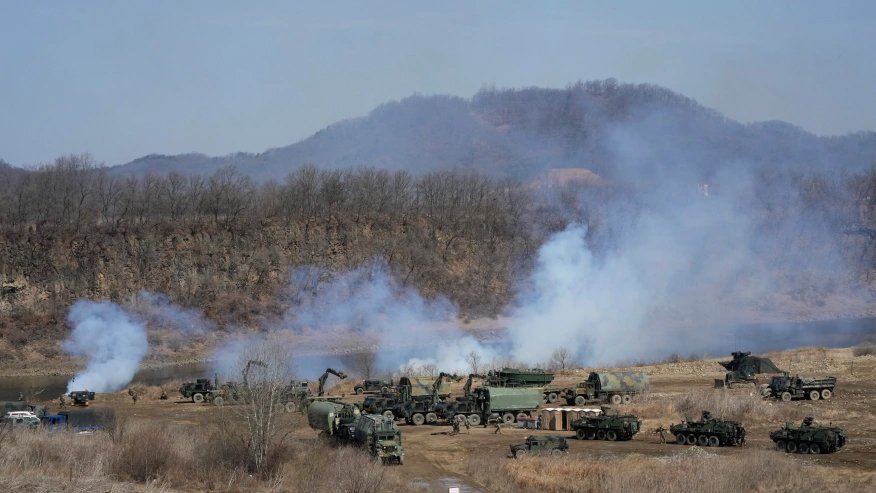SEOUL, June 21 (AP): South Korea successfully launched its first homegrown space rocket on Tuesday, officials said, a triumph that boosted the country’s growing space ambitions but also proved it has key technologies to build a space-based surveillance system and bigger missiles amid animosities with rival North Korea.
The three-stage Nuri rocket succeeded in releasing and placing its functioning “performance verification” satellite at a target altitude of 700 kilometers (435 miles) after its 4 p.m. liftoff from South Korea’s space launch center on a southern island, the Science Ministry said.
“Dear fellow citizens, the space of Republic of Korea is fully open. The science and technology of Republic of Korea has made a great advance,” Science Minister Lee Jong-Ho told a televised news conference at the launch center. “The government will continue its audacious march toward a space power together with the people.”
In a video conference with scientists and others involved in the launch, President Yoon Suk Yeol in Seoul congratulated them over their achievement and vowed to keep his campaign promise to establish a state aerospace agency, according to Yoon’s office.
Earlier live TV footage showed the 47-meter (154-foot) rocket, adorned with a national flag and its official name in Korean, rising into the air amid bright flames and thick white smoke.
The launch has made South Korea the world’s 10th nation to place a satellite into space with its own technology.
It was South Korea’s second launch of the Nuri rocket. In the first attempt last October, the rocket’s dummy payload reached its desired altitude but didn’t enter orbit because the engine of the rocket’s third stage burned out earlier than planned.
South Korea, the world’s 10th-largest economy, is a main supplier of semiconductors, automobiles and smartphones on world markets. But its space development program lags behind that of its Asian neighbours China, India and Japan.
North Korea placed its first and second Earth observation satellites into orbit in 2012 and 2016, though there is no proof that either one has ever transmitted spaced-based imagery and data back home. Those North Korean launches invited U.N. economic sanctions because they were viewed as covers for testing the country’s banned long-range missile technology.
Since the early 1990s, South Korea has sent a slew of satellites into space, but all from overseas launch sites or aboard a rocket built with the help of foreign technology. In 2013, South Korea successfully launched a satellite for the first time from its soil, but the first stage of its launch vehicle was manufactured by the Russians.
After South Korea’s 2013 satellite launch, North Korea’s Foreign Ministry accused the United States of revealing “double standards and brigandish nature” because it supported the South Korean launch but spearheaded U.N. sanctions on the North’s 2012 satellite launch. North Korea didn’t immediately respond to Tuesday’s Nuri launch.
South Korea plans to conduct four more Nuri rocket launches in coming years. It also hopes to send a probe to the moon, build next-generation space launch vehicles and send large-scale satellites into orbit.
South Korean officials said the Nuri rocket has no military purposes.
The transfer of space launch technology is strictly restricted under a multilateral export control regime because it has military applications. Experts say ballistic missiles and space launch vehicles share similar bodies, engines and other components, though missiles require a re-entry vehicle and other technologies.







